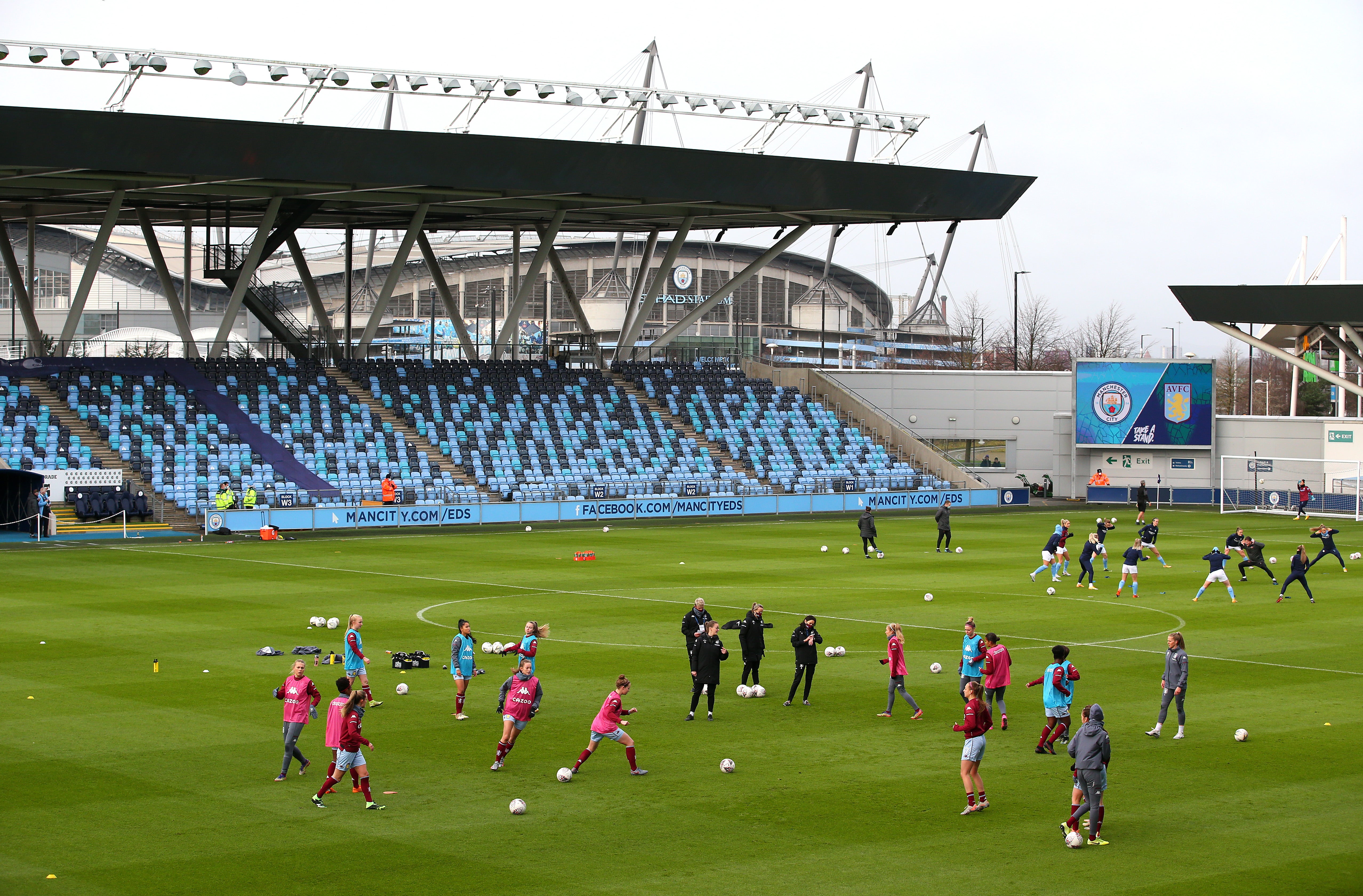Baroness Sue Campbell insists Euro 2022 has struck right balance with stadiums
Iceland midfielder Sara Bjork Gunnarsdottir labelled the use of the Academy Stadium ‘disrespectful’

Your support helps us to tell the story
From reproductive rights to climate change to Big Tech, The Independent is on the ground when the story is developing. Whether it's investigating the financials of Elon Musk's pro-Trump PAC or producing our latest documentary, 'The A Word', which shines a light on the American women fighting for reproductive rights, we know how important it is to parse out the facts from the messaging.
At such a critical moment in US history, we need reporters on the ground. Your donation allows us to keep sending journalists to speak to both sides of the story.
The Independent is trusted by Americans across the entire political spectrum. And unlike many other quality news outlets, we choose not to lock Americans out of our reporting and analysis with paywalls. We believe quality journalism should be available to everyone, paid for by those who can afford it.
Your support makes all the difference.Baroness Sue Campbell reiterated her defence of Euro 2022’s venues as the tournament closes in on half a million ticket sales.
The Football Association’s director of women’s football believes they have made the right calls over stadiums.
Manchester City Academy Stadium and Leigh Sports Village will host games, with both capacities under 10,000 for the Euros, while Old Trafford, Wembley, St Mary’s and Bramall Lane are also venues for the tournament which starts next month.
Iceland midfielder Sara Bjork Gunnarsdottir criticised some venue choices – calling the use of the Academy Stadium, which will have a capacity of 4,700, “disrespectful” – but Campbell is happy with the decisions.
She said: “We start with people who were prepared to work with us to do the tournament. We’ve sold 450,000 tickets which is pretty much double what they sold in Holland (for Euro 2017).
“The capacity put together in all of the stadiums is 725,000.
“So there is still capacity there, so it’s how you balance the England games which everybody wants to go to, with the reality that the other matches, however good they are, are not going to attract a full audience.
“So did we get the balance right? We will look at it again, but you’ve got a big stadium opening it, you’ve got a big stadium closing it off at Old Trafford and Wembley.
“We think we’ve got the balance about right. We’ll have a good look at it at the end and have a check and that is where we are at the moment.”
England host the Netherlands at Elland Road on Friday in the second of three warm-up games.
The tournament fixtures which have sold out so far include each of England’s group games, which start with a July 6 clash against Austria at Old Trafford, and the July 31 Wembley final.
Around 96,000 tickets have been sold to buyers outside of England, from 100 different countries, with around 45 per cent of buyers female.
Head of tournament delivery Chris Bryant also believes they needed to select venues carefully.
He said: “I wouldn’t really look at it in terms of regret. The strategy was always ‘how do we deliver the best tournament in the environments women’s football sat at the time of the bid but where it’s also going to be in the future?’
“We knew it would get bigger and we knew the interest would grow.

“We knew we needed to sell out matches and we really want the idea of matches being sold out to be a good thing as that’s what it is, it’s an achievement and we’re really proud of that.
“That then shifts demand for people who can’t get to an England game to go to other matches where we need the atmosphere and the attendance to support the tournament.
“If you look at that strategy and take our ambitions, we’ve got 700,000 tickets available for the tournament, I don’t think you can look at it in just the isolation of one particular venue.
“The bid for this tournament started in 2017 and 2018. I think we can all be aware the interest in hosting women’s sporting events probably wasn’t what it is today.
“The profile of the sport wasn’t what it was today. There are lots of reasons as to why stadiums look at hosting an event like this and say it’s not for them.”


Join our commenting forum
Join thought-provoking conversations, follow other Independent readers and see their replies
Comments